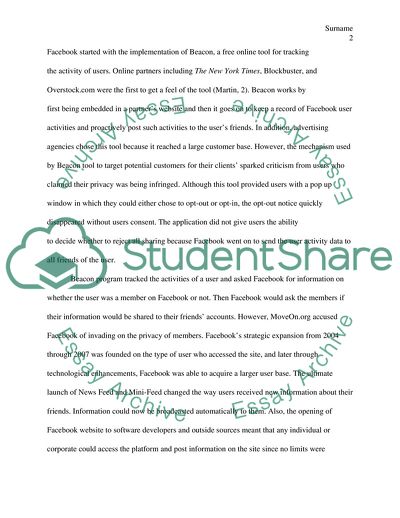Cite this document
(Ethical Problems Facing Facebook Case Study Example | Topics and Well Written Essays - 1250 words, n.d.)
Ethical Problems Facing Facebook Case Study Example | Topics and Well Written Essays - 1250 words. https://studentshare.org/information-technology/1762994-facebook
Ethical Problems Facing Facebook Case Study Example | Topics and Well Written Essays - 1250 words. https://studentshare.org/information-technology/1762994-facebook
(Ethical Problems Facing Facebook Case Study Example | Topics and Well Written Essays - 1250 Words)
Ethical Problems Facing Facebook Case Study Example | Topics and Well Written Essays - 1250 Words. https://studentshare.org/information-technology/1762994-facebook.
Ethical Problems Facing Facebook Case Study Example | Topics and Well Written Essays - 1250 Words. https://studentshare.org/information-technology/1762994-facebook.
“Ethical Problems Facing Facebook Case Study Example | Topics and Well Written Essays - 1250 Words”. https://studentshare.org/information-technology/1762994-facebook.


